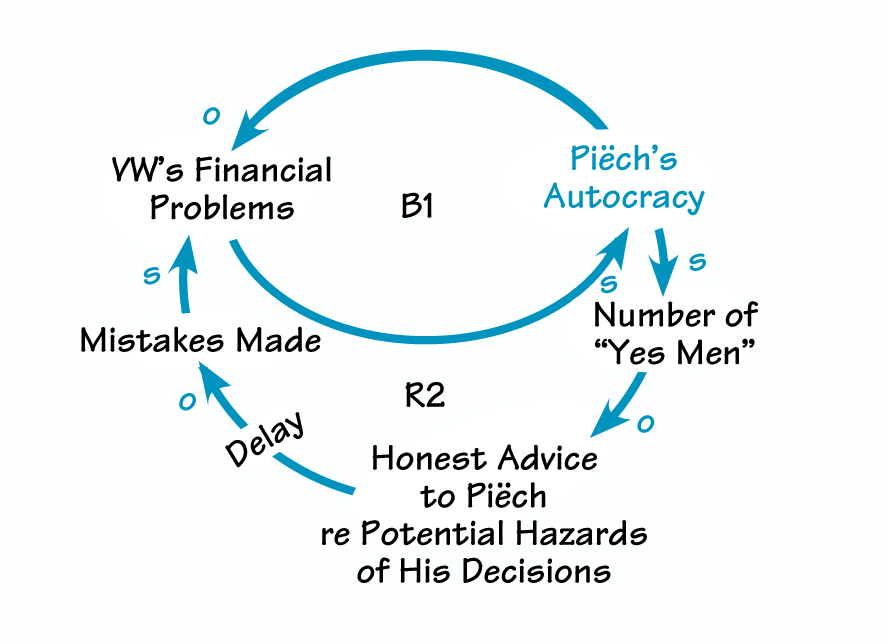With the ascendancy of Ferdinand Piëch to the top of Volkswagenin 1993, the car company has made a dramatic comeback. VW has pulled ahead in the European market, and its earnings have jumped 60 percent in 1998. Piëch has even made a success out of the New Beetle, a risky venture that had many analysts skeptical about the company’s future.
Yet as Business Week reported, “VW’s achievements since 1993 have come in a virtual autocracy.” Piëch has slashed the number of managers and advisors reporting to him, booted out anyone who has disagreed with him, and surrounded himself with “yes-men.” According to former associates, he rules with an iron fist, intimidating employees with long silences and surprise visits, and eschewing team-building and employee empowerment policies.
Leadership That Fails?
Is Piëch an effective leader or not? Clearly, his personal style and energy have played a direct role in the rescue of Volkswagen from a long period of stagnant sales and a staid reputation. However, this new round of success may have come at a steep price—one that probably won’t be evident until it’s too late to react. Specifically, Piëch’s autocratic ways may have some unintended consequences that in time may well plunge Volkswagen back into the financial doldrums it was suffering before the fiery CEO came along (see “The Dangers of Autocracy”).
A potential side-effect of this degree of centralized authority is that it undermines the leadership and decision-making capacity of others within the organization
We can view this situation as a classic example of the “Fixes That Fail” systems archetype. As shown in the diagram, Piëch’s autocracy has eased VW’s financial struggles (B1). But, as he has tightened his grip on the company, the number of “yesmen” surrounding him has increased. The more frightened people are of expressing honest concerns about the dangers inherent T in Piëch’s policies and decisions, the higher the risk that the CEO will make some fatal mistakes (R2). If such errors mount, the company could find itself in trouble once again—forcing Piëch to clamp down even harder.
Another potential side-effect of this degree of centralized authority is that it undermines the leadership and decision-making capacity of others within the organization. By inhibiting the development of leaders throughout the business, autocratic corporate heads virtually ensure that their companies will experience continuing problems. And because of delays in the system, many of those problems may not become evident until after the current CEO is gone— leaving the new management team to pick up the pieces.
The tragic theme underlying this situation is that CEOs like Piëch are not likely to be either willing to—or even capable of—considering the long-term hazards of their more autocratic policies. As one former VW executive explained in the Business Week article, “[Piëch] wants to prove that he has been underestimated for years.” It remains to be seen whether his need to prove himself, coupled with his inability to see the long-term consequences of his policies, will make for a volatile mix at Volkswagen.
THE DANGERS OFAUTOCRACY

As Piëch adopts a more and more autocratic style in order to whip Volkswagen into shape, he surrounds himself with “yes-men” who decline to challenge him. Without checks and balances, the CEO is likely to eventually start making mistakes—which only exacerbates the original problem symptom that prompted him to tighten his grip on the company in the first place
